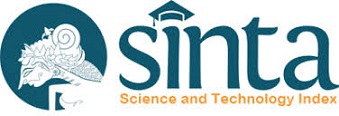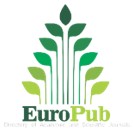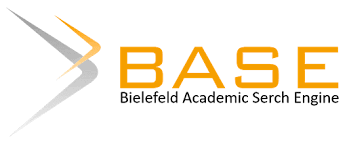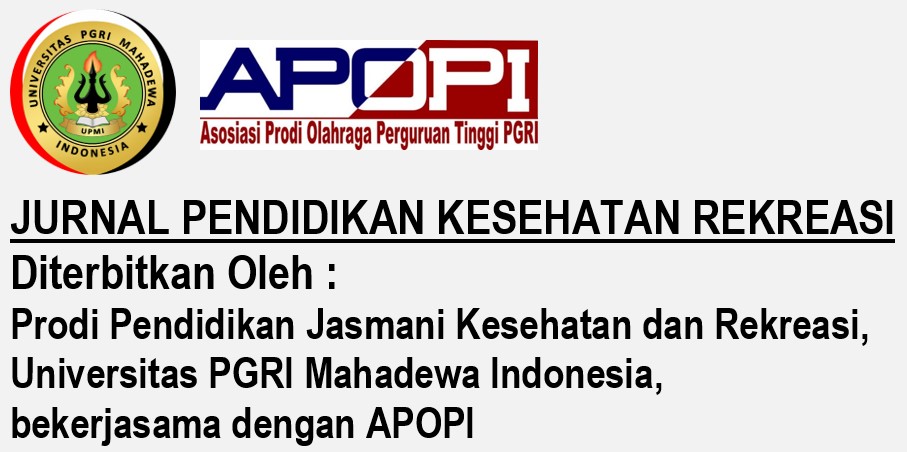Teaching Personal Social Responsibility Versus Konvensional sebagai Upaya Menciptakan Good Character Mahasiswa Laki-Laki dan Perempuan di Tingkat Universitas
DOI:
https://doi.org/10.5281/zenodo.4424224Keywords:
teaching personal social responsibility, good characterAbstract
Fenomena saat ini menunjukan karakter mahasiswa terus mengalami penurunan secara signifikan, sehingga menjadi masalah utama di dunia pendidikan jasmani yang harus segera di atasi. Tujuan penelitian ini adalah menguji efek teaching personal social responsibility (TPSR) versus konvensional sebagai upaya meningkatkan good charater mahasiswa laki-laki maupun perempuan di tingkat Universitas. Pendekatan kuantitatif dengan metode eksperimen dan desain factorial 2x2 digunakan dalam penelitian ini. Subjek berasal dari mahasiswa laki-laki dan perempuan tingkat III dari Universitas Suryakancana, Cianjur (Indonesia) yang berusia 19 sampai 21 tahun (n=32, TPSR = laki-laki : 8 dan perempuan : 8, konvensional = laki-laki : 8 dan perempuan : 8). Program intervensi dilakukan seminggu 3 kali dengan durasi 40 menit salama 12 kali pertemuan. Analisis Two Way ANOVA digunakan untuk menguji perbedaan antara kelompok TPSR dan konvensional dengan taraf signifikansi 0,05. Hasil menunjukkan terdapat perbedaan good character antara mahasiswa yang belajar menggunakan model pembelajaran TPSR dan konvensional, terdapat perbedaan yang signifikan antara model pembelajaran TPSR dan konvensional pada kelompok mahasiswa laki-laki dan perempuan, terdapat suatu interaksi antara model pembelajaran dan gender terhadap peningkatan good character mahasiswa. Kesimpulan dalam penelitian ini menunjukan bahwa TPSR terbukti menjadi alternatif model pembelajaran yang secara positif mempunyai keunggulan yang lebih baik dari konvensional untuk meningkatkan good character mahasiswa laki-laki dan perempuan di tingkat Universitas.
Downloads
References
Alcala, D. H., Río, J. F., Calvo, G. G., & Pueyo, A. P. (2019). Comparing effects of a TPSR training program on prospective physical education teachers’ social goals, discipline and autonomy strategies in Spain, Chile and Costa Rica. Physical Education and Sport Pedagogy, 24(3), 220–232. https://doi.org/10.1080/17408989.2018.1561837
Escartí, A., Pascual, C., Gutierrrez, M., Marin, D., Martinez, M., & Tarin, S. (2012). Applying the teaching personal and social responsibility model (TPSR) in Spanish schools context: lesson learned. ÁGORA Para La Educación Física y El Deporte, 14(2), 178–196
Filiz, B. (2019). Using personal and social responsibility model for gaining leadership behavior in students. European Journal of Educational Research, 8(1), 157–168. https://doi.org/10.12973/eu-jer.8.1.157
Gordon, B. (2012). Teaching personal and social responsibility through secondary school physical education : the New Zealand experience. Ágora Para La Educación Física Y El Deporte, 14(1), 25–37
Gordon, B., & Doyle, S. (2015). Teaching personal and social responsibility and transfer of learning: Opportunities and challenges for teachers and coaches. Journal of Teaching in Physical Education, 34(1), 152–161. https://doi.org/10.1123/jtpe.2013-0184
Gordon, B., Thevenard, L., & Hodis, F. (2012). A national survey of New Zealand secondary schools Physical Education programs implementatio of the teaching personal and social responsibility (TPSR) model. Ágora Para La Educación Física y El Deporte, 14(2), 197–212
Hellison, D., & Doolittle, S. (2007). Moral education in the practice of sport and physical education. Sport and Education: Tribute to Martin Lee, (September), 109–119. https://doi.org/10.14195/978-989-26-0474-9_9
Kastrena, E., & Setiawan, E. (2018). The Influence of Application of the Sport Education Learning Model in Improving Volleyball Playing Skills. International Conference on Sports Science, Health and Physical Education (ICSSHPE, 198–201. https://doi.org/10.5220/0007057801980201
Kastrena, E., Setiawan, E., & Adawiyah, A. (2020). Moving from Traditional Teaching to Blended Learning in the Teaching and Learning of Sports Test and Measurement Course to Improve Students’ Learning Outcomes. The 2nd International Conference and Innovation Exhibiti on Global Education, (September), 146–151
Kastrena, E., Setiawan, E., Patah, I. A., & Nur, L. (2020). Pembelajaran Peer Teaching Berbasis Zoom Video sebagai Solusi untuk Meningkatkan Hasil Belajar Passing Bawah Bola Voli saat Situasi COVID-19. Indonesian Journal of Primary Education, 4(1), 69–75. https://doi.org/10.17509/ijpe.v4i1.25133
Lickona, T. (2012). Educating for Character. Jakarta: Bumi Aksara
Martinek, T., & Hellison, D. (2016). Teaching Personal and Social Responsibility: Past, Present and Future. Journal of Physical Education, Recreation & Dance, 87(5), 9–13. https://doi.org/10.1080/07303084.2016.1157382
Pan, Y.-H., & Keh, N.-C. (2014). Teaching Responsibility Through Physical Education: Research and Applications in Taiwan. Japanese Journal of Sport Education Studies, 34(1), 63–69. https://doi.org/10.7219/jjses.34.1_63
Patah, I. A., Setiawan, E., Juliantine, T., & Budiarto. (2020). Creating good character on problematic students in Indonesia through TPSR model in physical education. International Conference and Innovation Exhibiti on Global Education, 123–128
Pavão, I., Santos, F., Wright, P. M., & Gonçalves, F. (2019). Implementing the teaching personal and social responsibility model within preschool education: strengths, challenges and strategies. Curriculum Studies in Health and Physical Education, 10(1), 51–70. https://doi.org/10.1080/25742981.2018.1552499
Rahayu, N. I., Suherman, A., & Jabar, B. A. (2018). Jurnal Pendidikan Jasmani dan Olahraga Hybridizing Teaching Personal Social Responsibility ( TPSR ) and Problem Based Learning ( PBL ) in Physical Education. Jurnal Pendidikan Jasmani Dan Olahraga, 3(2), 101–111
Romar, J.-E., Haag, E., & Dyson, B. (2015). Teachers’ experiences of the TPSR (Teaching Personal and Social Responsibility) model in Physical Education. Agora Para La Educación Física y El Deporte, 17(3), 202–219
Sallis, J. F., McKenzie, T. L., Beets,, Michael, W., Beighle, A., Erwin, H., & Lee, S. (2018). Physical Education’s Role in Public Health: Steps Forward and Backward Over 20 Years and HOPE for the Future. Res Q Exerc Sport, 83(2), 125–135. https://doi.org/doi:10.1080/02701367.2012.10599842
Santos, F., Miguel, J., Wright, P. M., Cesar, S., & Saraiva, L. (2020). Exploring the Impact of a TPSR Program on Transference of Responsibility Goals within a Preschool Setting : An Action Research Study. International Journal of Environmental Research and Public Health, 17(9449), 1–12. https://doi.org/doi:10.3390/ijerph17249449
Setiawan, E., Iwandana, D. T., Festiawan, R., & Bapista, C. (2020). Improving handball athletes’ physical fitness components through Tabata training during the outbreak of COVID-19. Jurnal SPORTIF, 6(2), 375–389. https://doi.org/10.29407/js_unpgri.v6i2.14347
Setiawan, Edi, Budiarto, & Afriyuandi, A. R. (2020). Korelasi Antara Physical Activity dan Physical Fitness Pada Atlet Bolabasket Level Pemula. Jurnal Pendidikan Olahraga Dan Kesehatan, 9(2), 197–208. https://doi.org/10.31571/jpo.v9i2.2005
Setiawan, Edi, Juliantine, T., & Komarudin, K. (2017). Development Creativity Students through Problem Based Learning Model in Physical Education in Reviewed of Adversity Quotient. International Conference on Sports Science, Health and Physical Education (ICSSHPE, (229), 611–613. https://doi.org/10.5220/0007066606110613
Setiawan, Edi, Patah, I. A., Bapista, C., Winarno, M. E., & Sabino, B. (2020). Self-efficacy dan mental toughness : Apakah faktor psikologis berkorelasi dengan performa atlet ? Self-efficacy and mental toughness : Do psychological factors correlate with athlete performance ? Jurnal Keolahragaan, 8(2), 158–165. https://doi.org/doi:https://doi.org/10.21831/jk.v8i2.33551
Severinsen, G. (2014). Teaching personal and social responsibility to juniors through physical education. Asia-Pacific Journal of Health, Sport and Physical Education, 5(1), 83–100. https://doi.org/10.1080/18377122.2014.867793
Suherman, A. (2014). Pembelajaran Scientific Dalam Pendidikan Jasmani (Prosiding Seminar SPS UPI). Bandung : UPI
Suherman, A. (2016). The Analysis of Character Education in Teaching Physical Education, (Icieve 2015), 232–234. https://doi.org/10.2991/icieve-15.2016.50
Toivonen, H. M., Wright, P. M., Hassandra, M., Hagger, M. S., Hankonen, N., Hirvensalo, M., … Lintunen, T. (2019). Training programme for novice physical activity instructors using Teaching Personal and Social Responsibility (TPSR) model: A programme development and protocol. International Journal of Sport and Exercise Psychology, 0(0), 1–20. https://doi.org/10.1080/1612197X.2019.1661268
Walsh, D. S., Ozaeta, J., & Wright, P. M. (2010). Transference of responsibility model goals to the school environment: Exploring the impact of a coaching club program. Physical Education and Sport Pedagogy, 15(1), 15–28. https://doi.org/10.1080/17408980802401252
Whitley, M. A., & Gould, D. (2011). Psychosocial development in refugee children and youth through the personal-social responsibility model. Journal of Sport Psychology in Action, 1(3), 118–138. https://doi.org/10.1080/21520704.2010.534546
Wright, P. M. (2012). Offering A TPSR Physical Activity Club To Adolescent Boys Labeled “At Risk” In Partnership With A Community-Based Youth Serving Program. Ágora Para La Ef Y El Deporte, 14(1), 94–114
Wright, P. M., & Craig, M. W. (2011). Tool for assessing responsibility-based education (TARE): Instrument development, content validity, and inter-rater reliability. Measurement in Physical Education and Exercise Science, 15(3), 204–219. https://doi.org/10.1080/1091367X.2011.590084
Wright, P. M., Li, W., Ding, S., & Pickering, M. (2010). Integrating a personal and social responsibility program into a Wellness course for urban high school students: Assessing implementation and educational outcomes. Sport, Education and Society, 15(3), 277–298. https://doi.org/10.1080/13573322.2010.493309
Downloads
Published
How to Cite
Issue
Section
License
Copyright (c) 2021 Jurnal Pendidikan Kesehatan Rekreasi

This work is licensed under a Creative Commons Attribution-NonCommercial-ShareAlike 4.0 International License.
Jurnal Pendidikan Kesehatan Rekreasi is published under the terms of Creative Commons Attribution 4.0 International License / CC BY NC SA 4.0. This license permits others to copy, distribute, modify, and create derivative works for non-commercial purposes only


































